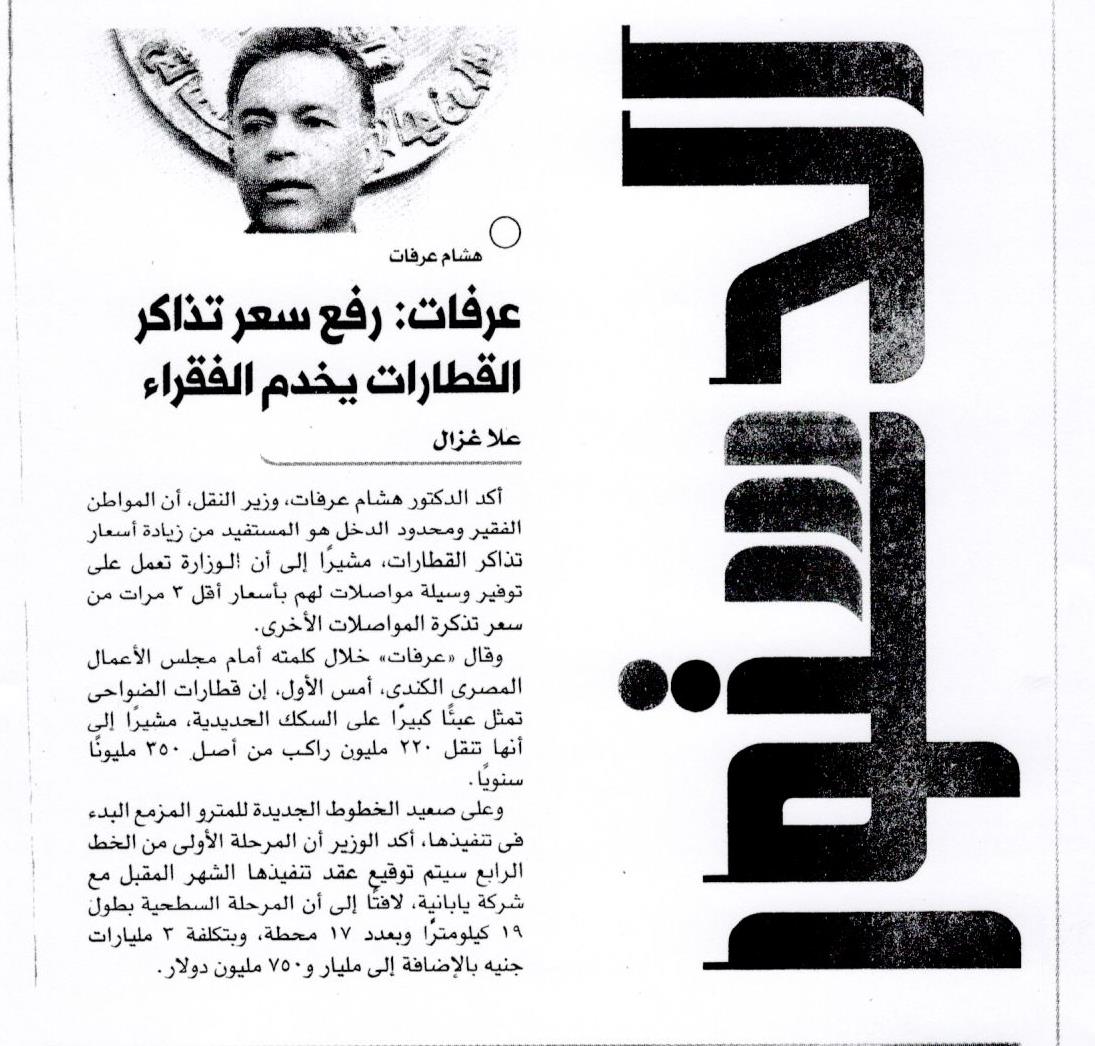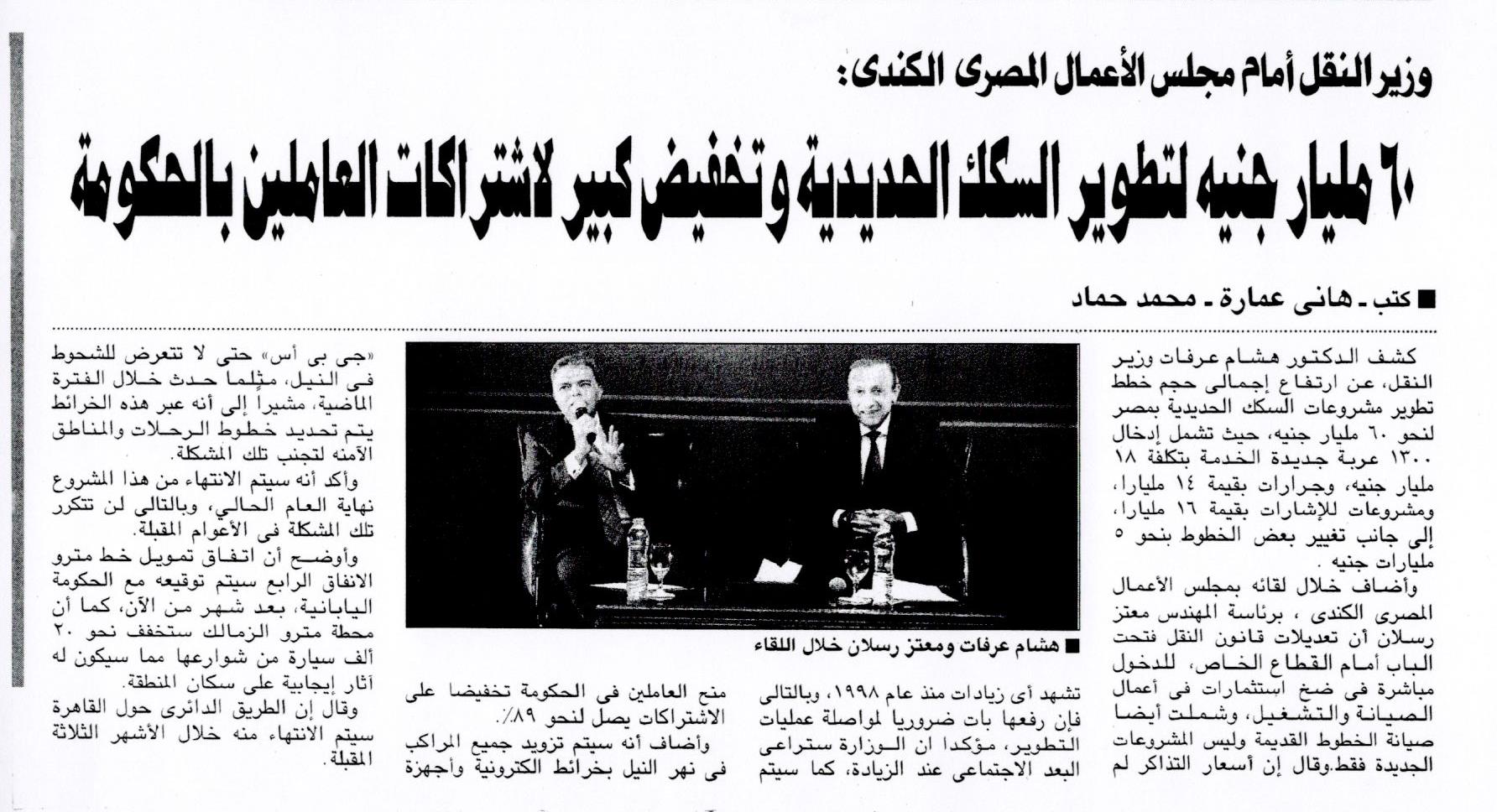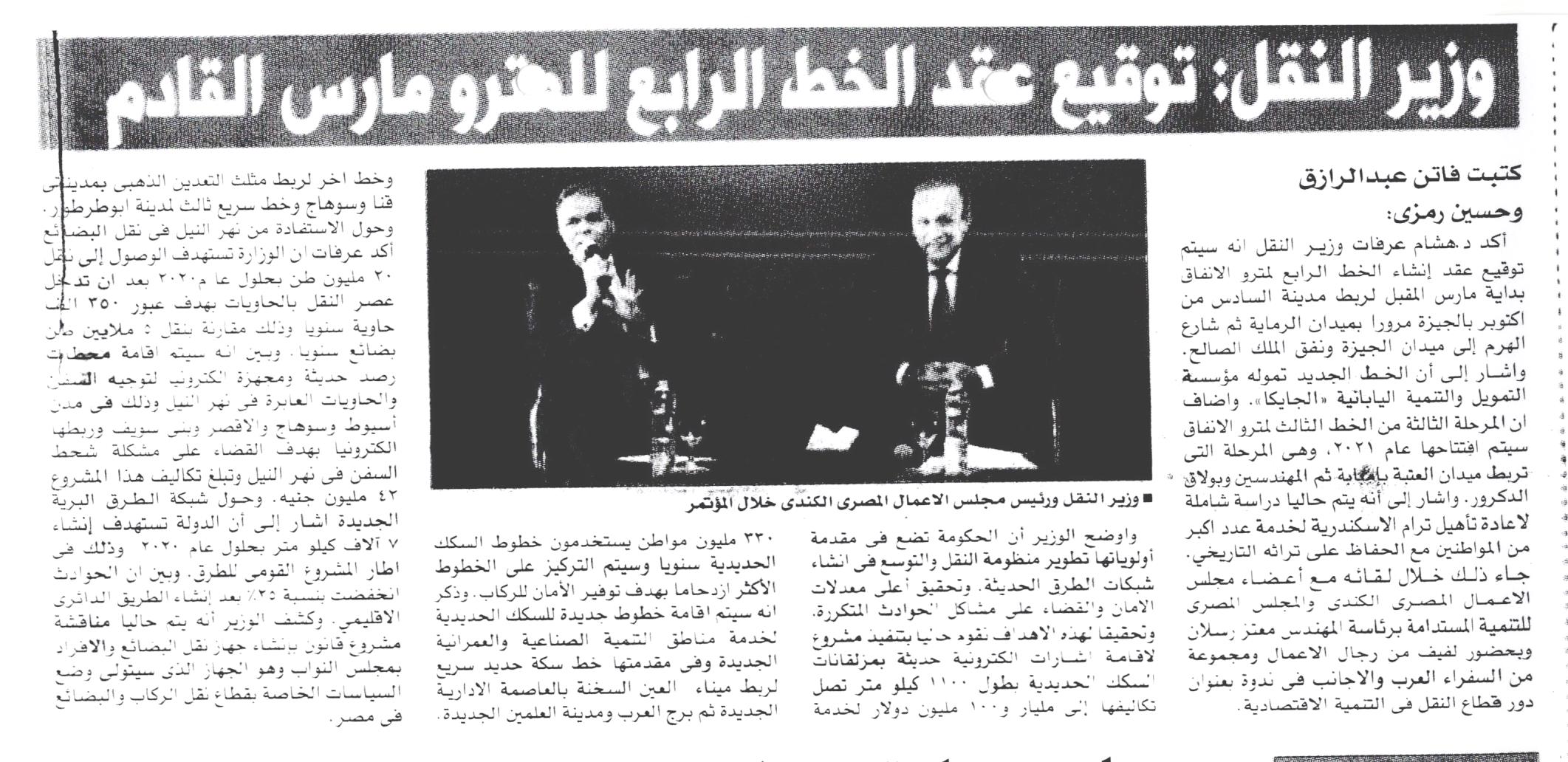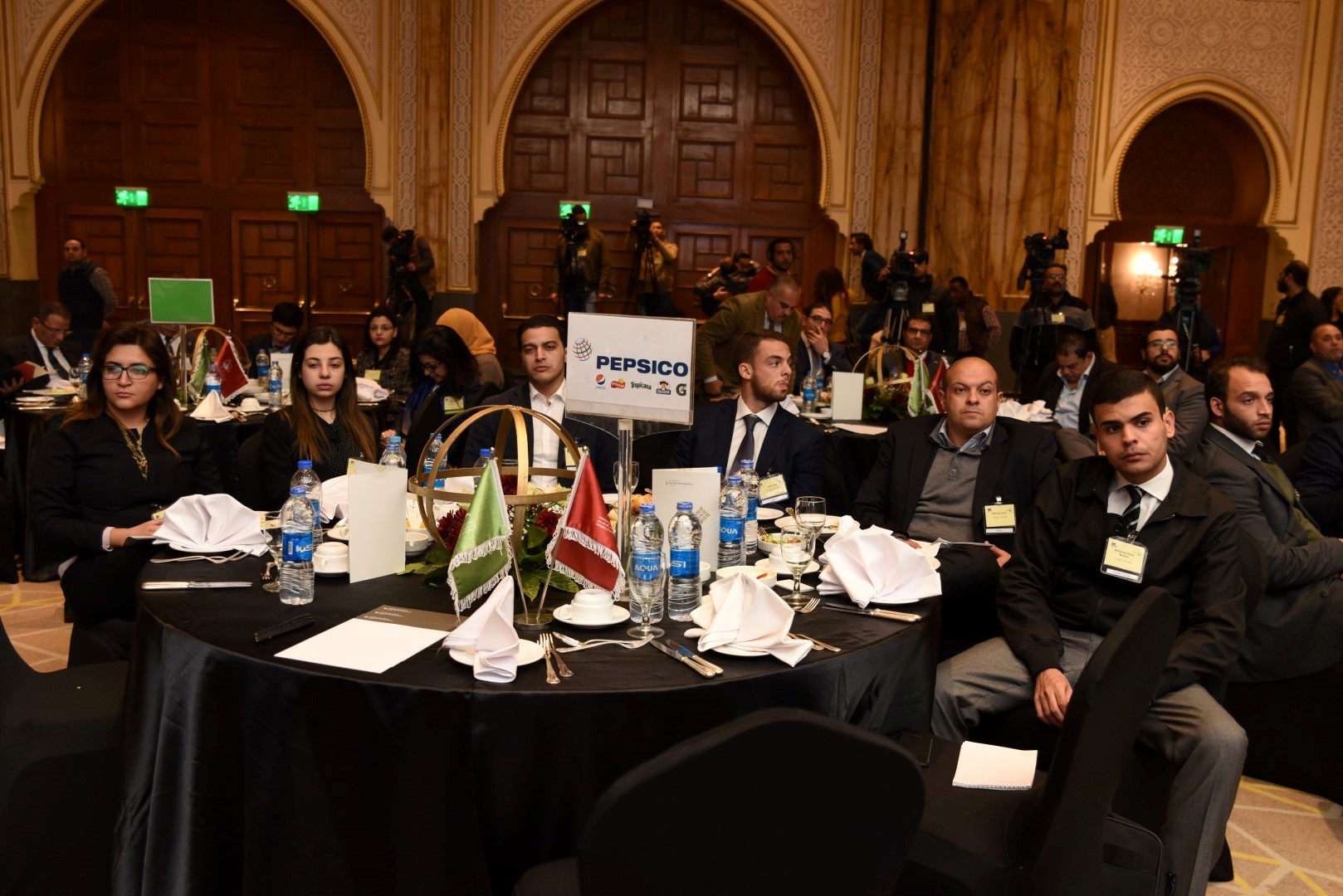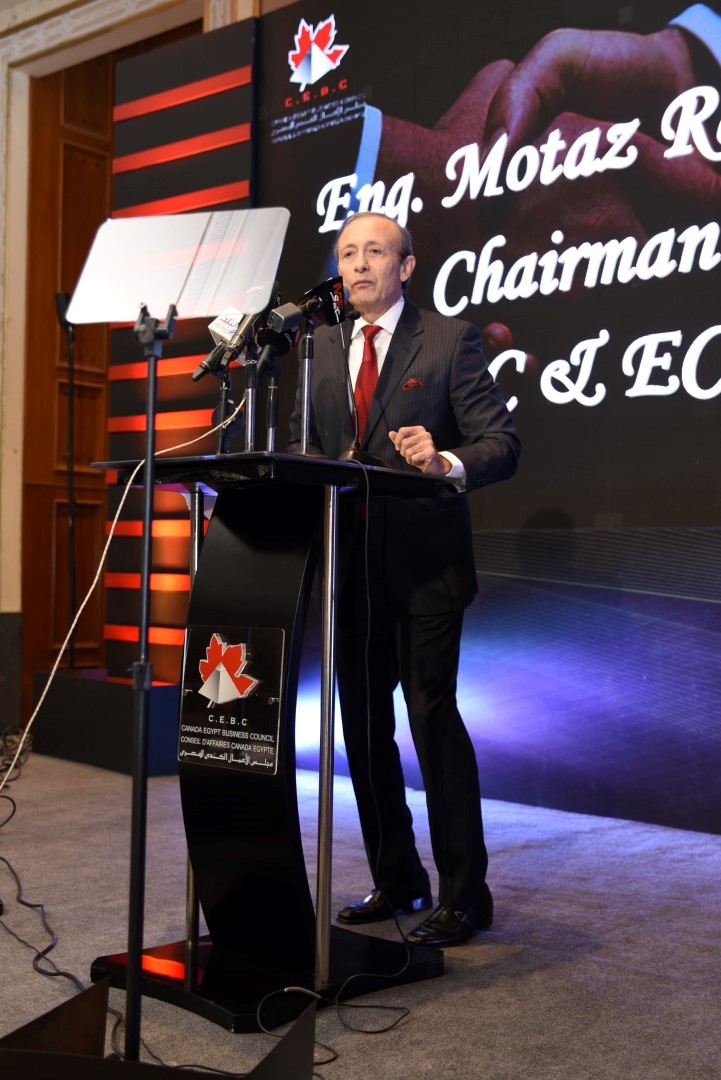
Date
Speaker(s)
Designation
Presentation
Invitation
Description
The government adopted an ambitious strategy to develop the transportation system by implementing several major projects aimed at developing roads, bridges, ports and railways; as well as improving the level of services to serve the economic development plans. However, despite all these efforts, this sector is still facing lots of challenges and problems. In this context, CEBC & ECSD organized an event with H.E Prof. Dr. Hisham Arafat to discuss the role of Egyptian transport sector in the Economic development.
In the opening remarks, Eng. Motaz Raslan mentioned that the development of the transportation sector, communications and roads system is necessary for the development of Upper Egypt & the remote areas and that the government should not invite Egyptian, Arab and foreign investors to develop Upper Egypt & those remote areas without a highly efficient road & transport network. He added that these factors encourage the investor to put these areas in his future plans; in addition to more incentives such as the elements of safety and protection, appropriate economic legislation, tax incentives and the availability of labor; stressing that the continuation of the situation as is makes it more difficult for the investor to exit from Greater Cairo & Alexandria and move towards different areas.
He pointed out that the crises and problems of the transportation sector are among the most important challenges facing economic & social development; and despite the efforts of the previous governments, they have not succeeded in upgrading the transport system. He added that the current governmental strategies for developing infrastructure and attracting investments in transportation should be reducing road accidents and preventing traffic congestion. However, after dealing with this sector in a manner similar to painkillers, the sector still faces many challenges, pointing to the volume of reforms needed by the transport system to keep pace with global developments.
H.E Dr. Hisham Arafat, Minister of Transport, mentioned that the transportation sector in Egypt has faced several challenges, including the rates of increasing demand for transportation, setting standards & modern systems related to safety and setting procedures related to the various means of transport. He pointed out that there is a gap between supply & demand, and that we have been late in keeping up with the technological developments of the railways, like the electric signals; that have been overtaken by global developments in the world of “trains”. He further explained that there are very busy lines, where the drops of suburbs are being used by about 22 million citizens, so the ministry is working on developing the system to increase efficiency, especially with regard to the cargo transport activity, which has witnessed a collapse over the past years. The minister also stressed that the development of this system is fully in the framework of a plan that takes into account all the possibilities available, with priority to the infrastructure of railways, to provide security. Also, there are some sectors in Egypt that have not been developed for long time ago, and that there are vehicles and tractors services that are being used since the seventies, noting that the development of the line that supports the region of the Golden Triangle, will witness great development and attention from the state.
He further added that there are consultations with the President of the European Bank for reconstruction and development for a line from the 6th of October city to the Sudanese border to be connected with Cairo – Cape Town line, as well as a plan to connect the new administrative capital with the railways at the level of the Republic. Then he called for the private sector to enter and invest in the railway, including the refrigerant business for the food sector on the long distance, such as fish from the province of Aswan and vegetables & fruits from the New Valley.
The Minister also referred to the efforts of the ministry in raising the efficiency of river transport, including studying the possibility of activating this sector in the transport of containers. He added that there is a huge project, which is the development of monitoring devices in more than one province and the supply of boats by GPS technology, pointing out that the economic indicators confirm the increase of investment in the private transport sector, and to the existence of new standards for safety of maritime transport.
The minister confirmed that a plan to separate the ownership of operating from censorship is being implemented, so that the transport system in Egypt, which suffered since 1991 to 2017, will rise. He noted that there are ongoing developments at the level of the lines and stages of the subway, including the third phase of the third line serving the threshold at Imbaba and Bulak Dakrur. He explained that the studies indicate that the city of Alexandria is not compatible with the establishment of metro tunnels, but is suitable for the development of railway lines, including the modernization of Abu Qir line, noting that there are investments which are currently being implemented that cost about 60 billion pounds between the trains and tractors purchased, as well as the development of signs and railways.
The floor was then opened for questions and answers session, where several ideas and suggestions were raised considering developing the transport system and infrastructure in Egypt.


